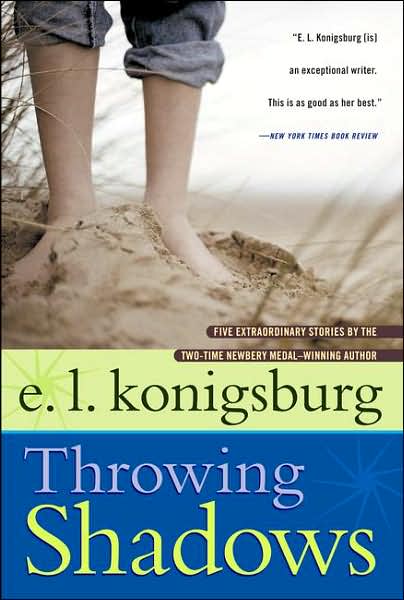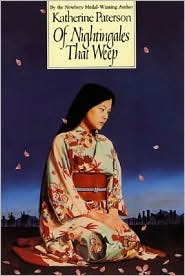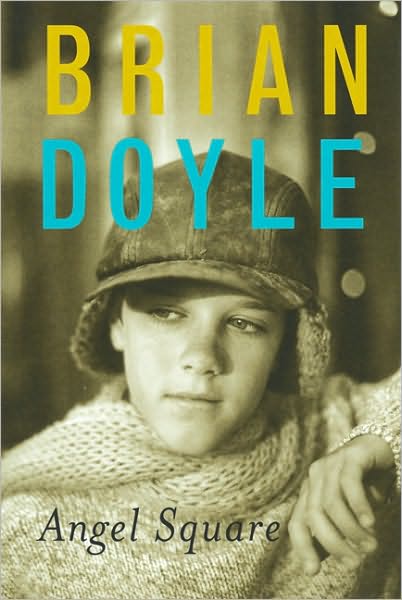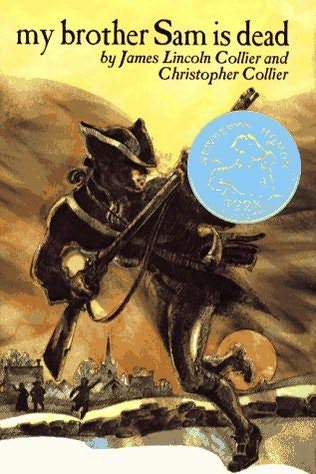
http://www.childlitassn.org/phoenix_award.html
ORIGIN
The Phoenix Award has been given to children literature authors by The Children Literature Association annually since 1985. The award is named after the tale of a bird that burned into ashes and then rose from them more beautiful and with a new life. Like the bird, these books have risen from the past and are noticed for their literary admirable qualities. The Phoenix Award was designed by Trina Schart Hyman, a Caldecott- winning illustrator. She drew the Phoenix on the statue for the ChLA award. The sculptor of the Phoenix statue is Diane Davis. Each year another brass sculpture is made from an individual cast and the year's winner is inscribed on the statue. Adding to the award in 1989, the ChLA instituted honor books but they were not given out every year.
RECIPIENT CRITERIA
1. The recipient was first published in English2. The recipient did not win a major award after twenty years of it's publication
3. The recipient promotes high standards for children's literature
SIMILARITIES OF PHOENIX AWARD/HONOR BOOKS
In these Phoenix Award and Honor books there are several similarities between them. The following twenty-eight novels share several similarities. These similarities are important for each of the books because they help convey the story. Struggle and culture are the main themes that occur throughout the books.
Each of the following novels have the same reoccurring theme. The theme of struggle is one of main focus in these Phoenix Award and Phoenix Honor books. It is through the theme of struggle that the protagonists in these sixteen novels are young children who rise above it, and deal with whatever obstacle may come along to overcome that specific struggle in their lives. This is apparent in the novel Sing Down the Moon by Scott O'Dell, which tells a story of a young Navaho girl who struggles with facing a forced migration. Also, in Of Nightingales That Weep by Katherine Patterson a young girl named Takiko must learn to deal with her father's death and the remarriage of her mother. Struggle is also seen in Abel's Island by William Steig, where a mouse named Abel struggles with being alone on an island after being carried away from his family by a storm. In Story For a Black Night by Clayton Bess, Smallboy and his family struggle with being plagued by the small pox. A good example of the rise of a protagonist through their many struggles is in Listen For the Fig Tree by Sharon Bell Mathis. The protagonist Muffin Johnson is sixteen and blind, but she also has to deal with being a young African American girl in the south and her mother being an alcoholic, yet somehow she has a positive outlook on life.
The theme of culture is important in each of these books. The culture can set the setting, and the tone of the book. The heritage of the books range from Japanese, African American, African, British, Russian, Canadian. In A Chance Child by Jill Paton Walsh, Creep is a young boy who travels back in time during the British Revolution. The fact that this is set in Britain gives Creep the chance to see how hard people worked in coal mines and cotton mills. Also in Story for a Black Night by Clayton Bess, his in depth portrayals of how the small pox plagued the people in Africa is important in understanding the characters of the book, and the struggles they go through living in a plague. Another example of culture being an important theme of the book, is in Carrie's War by Nina Bawden how the protagonist Carrie is evacuated from her home in London in WWII and relocated to Wales. Especially in The Stone Book by Alan Garner, it is specifically about a time in England when stone cutting was part of the life and culture of the English people.
Another aspect in common between all the books, is the characterization of the protagonists in each of the books. The protagonists are all vulnerable to whatever situation they are in. Whether it be a mouse who is carried away by a storm as in Abel's Island, or a young mortal girl meeting an immortal family as in Tuck Everlasting. The vulnerable protagonist is also apparent in The Keeper of the Isis Light in which a young girl Olwen who lives on planet Isis, goes through changes when visitors from Earth arrive. In The Tombs of Atuan a young Kargish girl named Tenar is taken from her family at the age of six to become a high priestess. Being a young girl not knowing what to do, or how to be a "high priestess" makes an already vulnerable little girl overwhelmed. Although all the protagonists are vulnerable, they all rise against their vulnerabilities and their struggles to achieve their hopes and their dreams.
Allusions are references made within the story to other media, such as television, theatre, people, etc. Allusions are found in Howl’s Moving Castle and Beauty: A Retelling of the Story of Beauty and the Beast. For example, in Beauty there is a reference made to “The Complete Poems of Robert Browning” and “The Adventures of Sherlock Holmes” on page 147. And in Howl’s Moving Castle, there is a reference to John Doone’s poem “The Sun Rising” when he calls Sophie, another main character, a “Busy old fool, unruly Sophie.” An allusion can also be found in the book The Devil's Arithmetic where they mention the fairy tale Hansel and Gretel on page 67. In A Proud Taste For Scarlet and Miniver there is an allusion made, on page 125, to the nursery rhyme "Humpty Dumpty" when the Abbot was talking about the destruction of his church.
Theme is a central message that is woven within the story. The theme of courage is evident throughout the characters in these books. The characters must overcome obstacles by gaining the courage to do so. For example in Dragonwings, Moon Shadow has to gain courage to leave his homeland in China and move to San Francisco, California. While living there, he must face racism and prejudice. He specifically has to stand up to a group of boys who throw rocks at him and mock his Chinese heritage. He does this by punching Jack, the biggest boy in school, in the nose. Soon after, they become friends. In My Brother Sam is Dead, Sam must find the courage to go against the ways of his father. Sam’s father is a “Tory” during the revolutionary war that is loyal to the king. Sam rebels and joins the army to fight against the British. Another novel that shows courage as a theme is Eva. Eva wakes up paralyzed not knowing how or why she is in the hospital. Because of an experiment, Eva’s memories are transferred into the body of chimp. She, now, has to adapt to living life as a chimp among humans. But when the chimpanzee species are dying out, she is forced to live among the chimps and with her human knowledge, she has to teach the chimps how to survive. Jeff Greene is the protagonist in the book The Solitary Blue who was abandoned by his mother when he was only seven-years-old and had turned himself into the perfect son for his father. When his mother wrote him a letter asking him to visit, he then must find within himself the courage to face her again.
The point of the view in a story is the perspective in which the story is being told. Most of these books are told in the first person point of view. This means it is told using the words, "I" or "we." In My Brother Sam Is Dead, the story is seen through the eyes of Sam, the main character. The protagonist Harry Hamilton in the novel The Tricksters serves as the point of view for the book. Everything that goes on around her is seen through her eyes. In I Am The Cheese, Adam isn't referred to by his name; He refers to himself as "I," therefore, proving that this book is written in first-person point of view.
A reocurring motif from these books is a dream-like fantasy and is highly imaginative. Like in Weetzie Bat, there is a fine line between reality and a dream-like world. The story is set up like it is in a world of reality, but as the story shifts, a genie is added and the reality is shaken. Also in The Catalogue of the Universe, Angela has a wild imagination and is constantly fantasizing about a different life. "Angela almost expected to see it open of its own accord and line after line of words marching out like soldiers parading before a general." Adding to the imaginative concept, the names of characters in Weetzie Bat are strange and fanciful, like My Secret Agent Lover Man and Duck. The story also hops from subject to subject very quickly, giving it the feeling of being in an actual dream.
Like previously stated, a strong theme that runs throughout Phoenix Award books is struggle or adversity. Like in Waiting for the Rain, Tengo, who is black, seeks political equality and struggles with attaining it. Tengo desperately seeks a way for whites and blacks to live equally, therby ending Apartheid. In Sing Down The Moon, Bright Morning is kidnapped by Spaniards as well as deal with the fact that her husband Tall Boy, is wounded and can no longer be a warrior. In Queenie Peavy, Queenie must face jokes and insults from her peers because her father is in the penetentiary.
Culture is another theme that reoccurs in many of the books. For example, in Angel Square, Tommy learns about the forces that divide communities. In the communities, tolerance is heavy-handed and there are many fights between the differing faiths. Through Tommy's eyes, we see the absurdity of racism and the hope that at least one child will understand their differences.
PHOENIX AWARD WINNERS

Weetzie Bat, By Francesca Lia Block
Premise: Weetzie Bat lives in Los Angeles with her best-friend, Dirk. One day Dirk's grandma gives her a genie's lamp and Weetzie makes three wishes not knowing the consequences.
Phoenix Award Winner in 2009

Eva, By Peter Dickinson
Premise: An experimental surgery takes Eva’s memories and places them into a chimpanzee. But when the existence of chimpanzees is in danger, Eva must help them survive.
Phoenix Award Winner in 2008

Howl's Moving Castle, By Diana Wynne Jones
Premise: In a magical place named Ingary, Sophie is turned into an old lady by the Witch of the Waste. When she is held captive, Howl, a well known wizard, has to decide whether or not to take on the responsibility of saving her.
Phoenix Award Winner in 2006

The Catalogue of the Universe, by Margaret Mahy
Premise: High school senior Angela and best friend Tycho try to find order in their lives as their families deal with their own problems.
Phoenix Award Winner in 2005

White Peak Farm, by Berlie Doherty
Premise: Young Jeannie lives with her family on an isolated farm in the English countryside, there she learns how loving bonds keep her family together.
Phoenix Award Winner in 2004

The Keeper of the Isis Light, by Monica Hughes
Premise: A young girl named Olwen lives on the planet Isis and is changed when settlers from Earth come to visit.
Phoenix Award Winner in 2000

Throwing Shadows, by E. L. Konigsburg
Premise: In these short stories, Ned, Antonio, Avery, Phillip, and William discover their uniqueness through every day events.
Phoenix Award Winner in 1999

A Chance Child, by Jill Paton Walsh
Premise: During the nineteenth century, a neglected boy named Creep, travels back in time in hope to escape his families issues.
Phoenix Award Winner in 1998

I Am The Cheese, By Robert Cormier
Premise: While searching for the truth, Adam’s father tells him that he testified against a conspiracy and has to change their names. Soon after, their protector tells them that they may have been discovered.
Phoenix Award Winner in 1997

The Stone Book, by Alan Garner
Premise: During a time when stone cutting was popular in England, Mary searches for a book to revel the secret of a stone.
Phoenix Award Winner in 1996

Dragonwings, By Laurence Yep
Premise: A young chinese boy must adapt to the harsh conditions of living in America during the 1900s.
Phoenix Award Winner in 1995

Of Nightingales That Weep, by Katherine Paterson
Premise: After Takiko's father dies during Japan's civil war, she tries to make a decision to honor her family or to follow the love of her life.
Phoenix Award Winner in 1994

Carrie's War, by Nina Bawden
Premise: During WWII a young girl, Carrie, and her brother are evacuated from their home in London and are relocated to Wales where they have difficulty learning to live with the new families troubles.
Phoenix Award Winner in 1993
Enchantress from the Stars, by Sylvia Louise Engdahl
Premise: Elana, a young girl that belongs to an advanced space-faring civilization called the “Federation,” assists the planet Andrecia from the Imperial Exploration Corps who seeks to take hold of the planet’s resources.
Phoenix Award Winner in 1990

Smith, By Leon Garfield
Premise: In London during the 18th century, poor Smith steals from an old man and witnesses his murder. He hopes that what he stole from the old man will take him out of the “slums.”
Phoenix Award Winner in 1987
PHOENIX HONOR BOOKS

The Devil's Arithmetic, By Jane Yolen
Premise: Hannah Stern is a Jewish girl from New Rochelle. During Passover Sedar, she is transported back to 1942 Poland dosen't know how to get back home.
Phoenix Honor Book in 2008
Waiting for the Rain, by Sheila Gordon
Premise: Tengo and Frikkie are childhood friends in South Africa, but Tengo is black and Frikkie is white. Their friendship is challenged during the Apartheid era.
Phoenix Honor Book in 2007
The Tricksters, By Margaret Mahy
Premise: While Harry Hamilton and her family were visiting Carnival’s Hide for the Christmas holiday, the sudden appearance of three brothers brings about a mystery. How will Harry solve this mystery?
Phoenix Honor Book in 2006

Angel Square, by Brian Doyle
Premise: It’s 1945 in a tough urban area in Ottawa, Canada. Tommy learns that his best friend’s father is beaten by a Jew hater. He works side to side with his Jewish, Irish, French-Canadian friends to find who the attacker was.
Phoenix Honor Book in 2004

A Solitary Blue, Cynthia Voigt
Premise: Jeff Greene was abandoned by his mother when he was seven-years-old. Years later, he recieves a letter from his mother asking to visit. How will this affect his life?
Phoenix Honor Book in 2003

Story for a Black Night, by Clayton Bess
Premise: At night, a story is retold about a young boy who is living in a family that is plagued by small pox.
Phoenix Honor Book in 2002

The Night Journey, by Kathryn Lasky
Premise: A young girl, named Rachel, learns about her great-grandmother's unspoken escape from Russia.
Phoenix Honor Book in 2001
The Fledgling, by Jane Langston
Premise: Georgie, a young, independent, imaginative girl wants to learn how to fly and is encountered by a Canada goose that helps her with this dream.
Phoenix Honor Book in 2000

Words By Heart, by Ouida Sebestyen
Premise: In a southern town, in 1910, a young African American girl named Lena Sills has difficulty following her father's advice that forgiveness is more powerful than vengeance.
Phoenix Honor Book in 1999

Beauty: The Retelling of Beauty and the Beast, By Robin McKinley
Premise: Honour nicknamed Beauty, her two sisters, and father must adapt to living without luxurious and has to live and work on a farm to survive. Beauty is, then, forced to live with a beast in order to save her father's life.
Phoenix Honor Book in 1998

Abel's Island, by William Steig
Premise: Abel, a middle class mouse, is deserted on a island after a terrible storm and he must figure out a way to get back to his wife.
Phoenix Honor Book in 1996

Tuck Everlasting, by Natalie Babbitt
Premise: Young Winnie learns life lessons from the immortal Tuck family after they drink from a water spring on her family's property.
Phoenix Honor Book in 1995

Listen for the Fig Tree, by Sharon Bell Mathis
Premise: Living in the south in 1910, a young blind African American girl named Muffin Johnson struggles with her blindness and her mother's alcoholism.
Phoenix Honor Book in 1994

My Brother Sam Is Dead, By James Lincoln Collier & Christopher Collier
Premise: Tim's brother, Sam, goes against their father's principles and wishes by joining the military to fight against the British in the Revolutionary War.
Phoenix Honor Book in 1994

A Proud Taste for Scarlet and Miniver, By E.L. Konigsburg
Premise: Eleanor of Aquitaine is in Heaven, listening to her life story as told by Abbot Suger, Matilda-Empress, and William the Marshal. Her story is being told as she awaits the judgement of her former husband King Henry II.
Phoenix Honor Book in 1993

The Tombs of Atuan, by Ursula LeGuin
Premise: A Young Kargish girl named Tenar is taken from her home at the age of six to become the high priestess for those known as The Nameless Ones.
Phoenix Honor Book in 1991

Sing Down the Moon, by Scott O'Dell
Premise: A young Navaho girl named Bright Morning, deals with the struggles of a forced migration in the midwest during the 1860's.
Phoenix Honor Book in 1990
Queenie Peavy, by Robert Burch
Premise: Queenie Peavy, an 8th grader from Georgia, is living in the shadow of the jail during the great depression. Her mind is in a battle between good and evil and her future depends on which road she takes.
Phoenix Award Winner in 1986
Ideas, requests, problems regarding CSUSB Community Wiki? Send feedback

